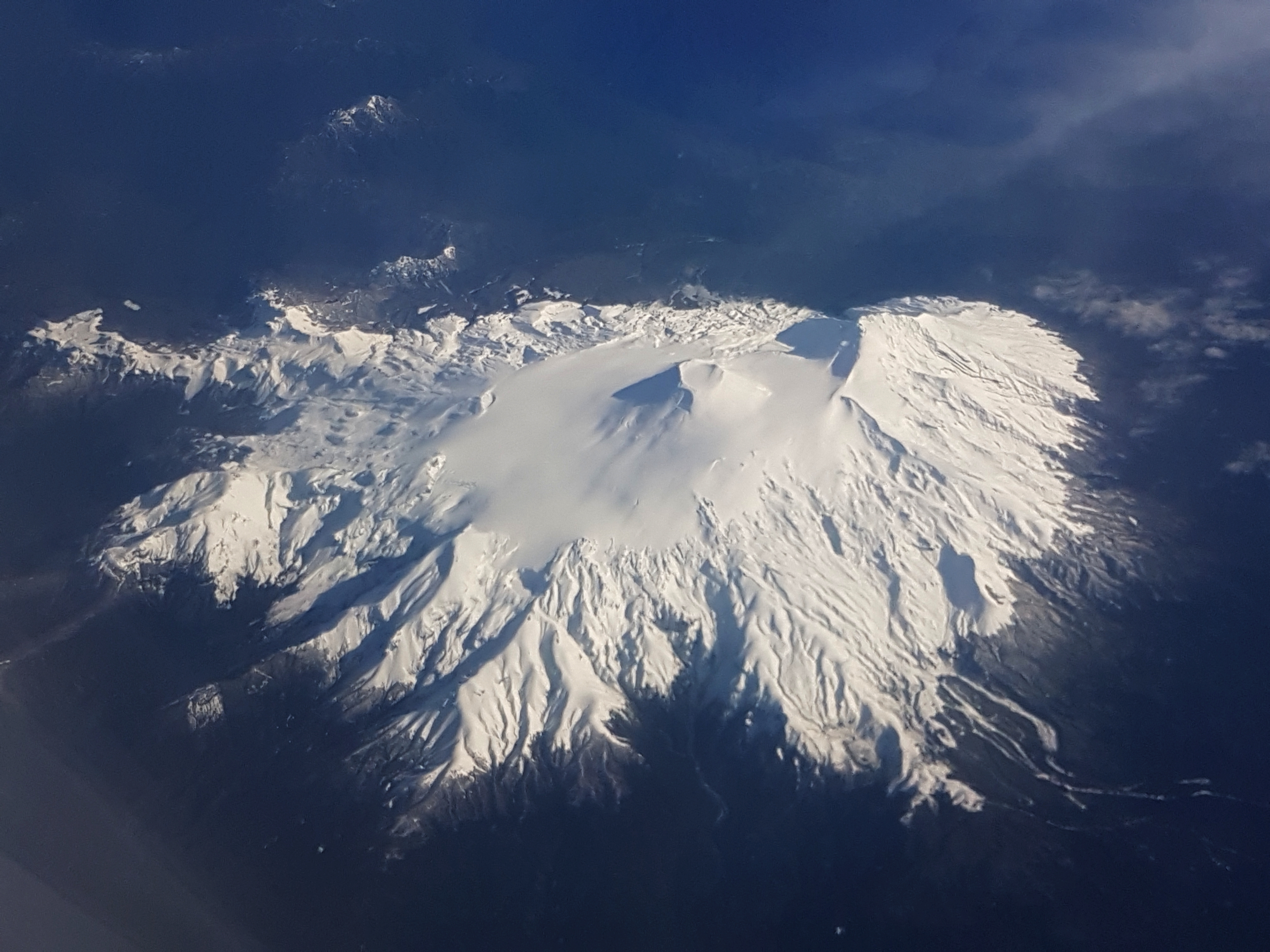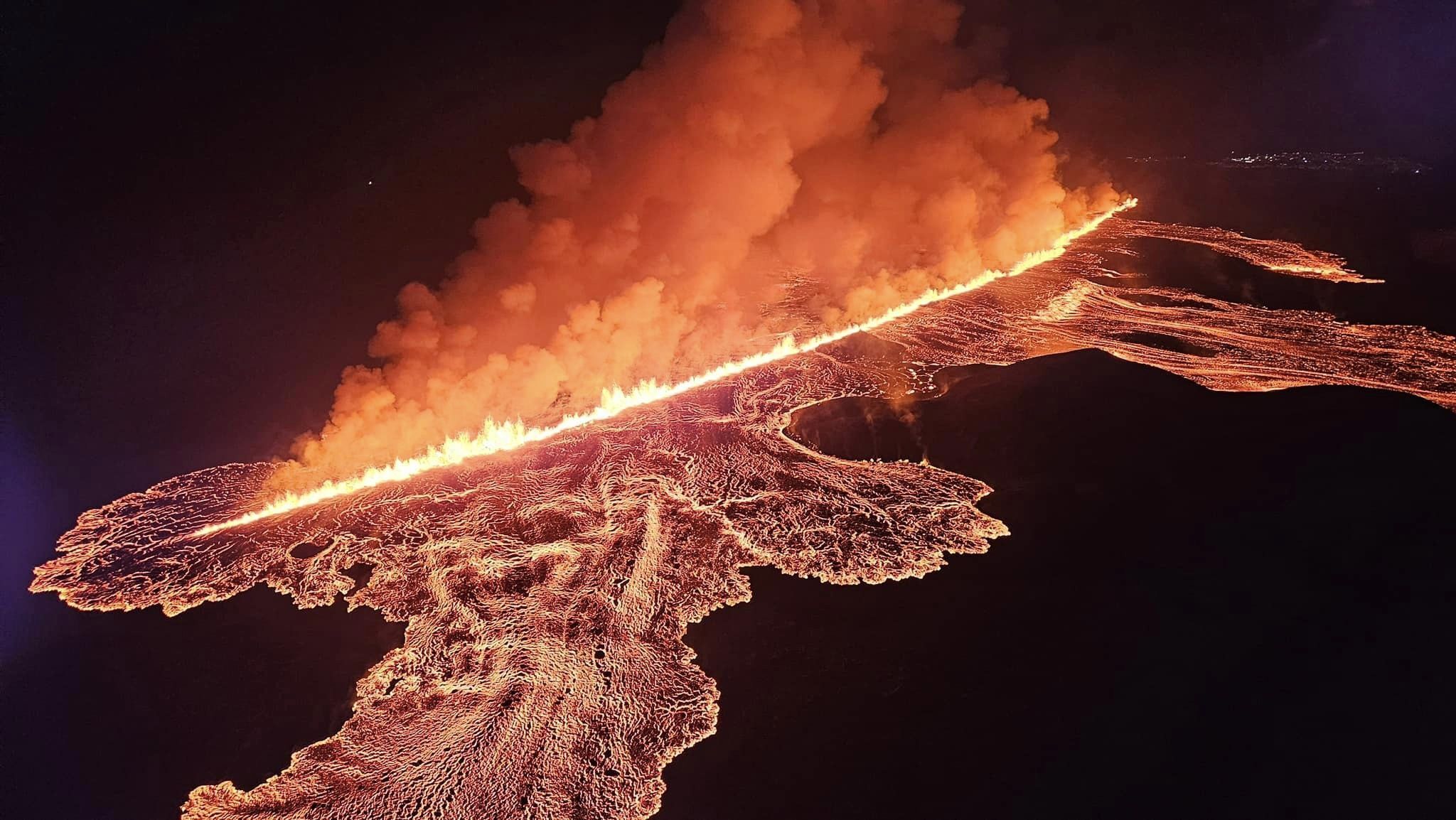Environment & Energy
Related: About this forumMore Volcanic Eruptions, Study Suggests. Now, All Eyes Are On Antarctica
New research from the Chilean Patagonia has identified a link between glacial retreat and underground volcanic activity
Christian Thorsberg - Correspondent
July 9, 2025 1:47 p.m.

Chile's Mocho-Choshuenco volcano, as seen from the air in June 2019 Dropus via Wikipedia Commons under CC BY-SA 4.0
Since the new millennium, the world’s glaciers have shed 5 percent of their collective mass, a loss with significant impacts on both global and regional scales.
When glaciers melt, sea levels rise, avalanches and landslides are more likely to occur, and long-term freshwater access is thrown into question.
Now, a new study adds an additional—and explosive—consequence to the list of changes: melting glaciers are likely to make volcanic eruptions more frequent and severe.
The study’s authors, representing the University of Wisconsin-Madison, Dickinson College and the University of La Frontera, presented their findings this week at an international geochemistry conference in Prague. As glaciers retreat, they said, the massive weight of ice gradually lifts off of tectonic plates, alleviating pressure on underground magma chambers and making eruptions more likely.
“When you take the load off, it’s just like opening a Coca-Cola bottle or a champagne bottle,” Brad Singer, a geoscientist at the University of Wisconsin-Madison, told Bob Berwyn of Inside Climate News. “It’s under pressure, and the dissolved gasses in the melt come out as bubbles.”

Lava erupts from a fissure on Iceland's Reykjanes Peninsula near the town of Grindavik on August 22, 2024, during the sixth eruption to hit the area since late 2023. Now, the number of eruptions has risen to eight. Almannavarnadeild (Iceland Civil Defense)/Anadolu via Getty Images
More:
https://www.smithsonianmag.com/smart-news/melting-glaciers-will-likely-lead-to-more-volcanic-eruptions-study-suggests-now-all-eyes-are-on-antarctica-180986945/
OKIsItJustMe
(21,678 posts)Research presented at the Goldschmidt Conference in Prague
Reports and Proceedings
European Association of Geochemistry
Melting glaciers may be silently setting the stage for more explosive and frequent volcanic eruptions in the future, according to research on six volcanoes in the Chilean Andes.
Presented today [Tuesday 8 July] at the Goldschmidt Conference in Prague, the study suggests that hundreds of dormant subglacial volcanoes worldwide – particularly in Antarctica – could become more active as climate change accelerates glacier retreat.
The link between retreating glaciers and increased volcanic activity has been known in Iceland since the 1970s, but this is one of the first studies to explore the phenomenon in continental volcanic systems. The findings could help scientists better understand and predict volcanic activity in glacier-covered regions.
Researchers from the University of Wisconsin-Madison, USA, used argon dating and crystal analysis across six volcanoes in southern Chile, including the now dormant Mocho-Choshuenco volcano, to investigate how the Patagonian Ice Sheet’s advance and retreat influenced past volcanic behaviour. The work is in collaboration with researchers from Lehigh University, University of California Los Angeles, and Dickinson College.
…